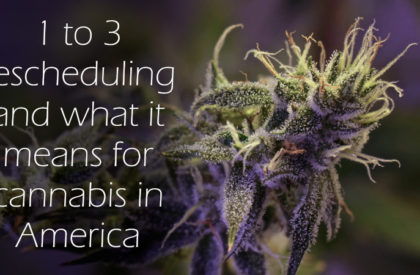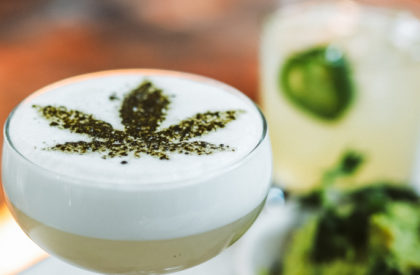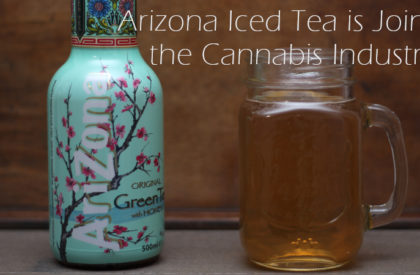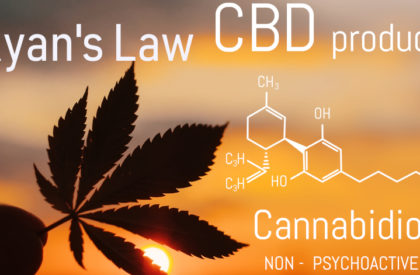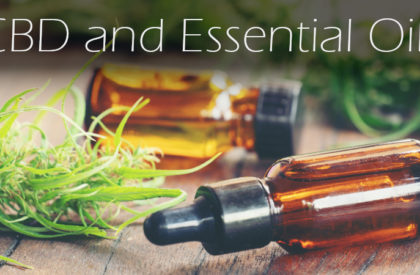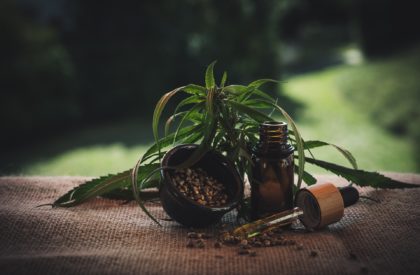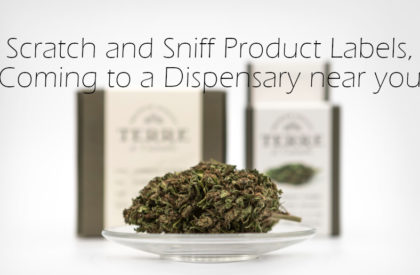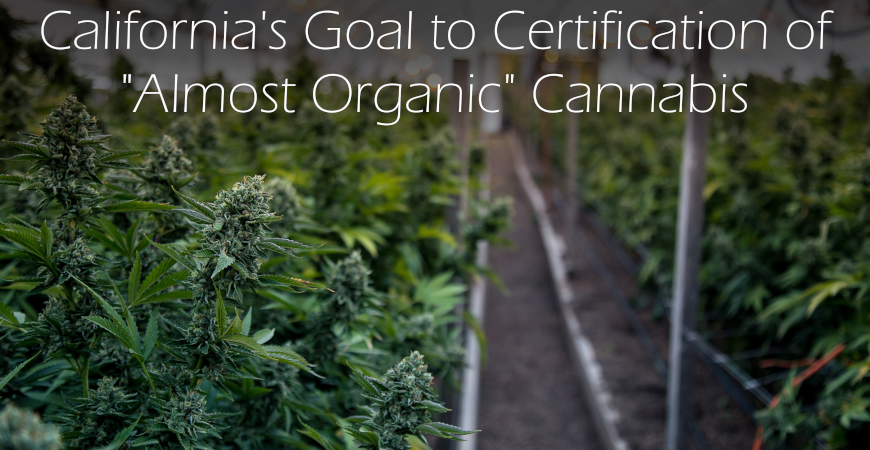
California’s Goal to Certification of “Almost Organic” Cannabis
California is looking to set up its own organic certification for cannabis products.
People have generally become more discerning about the quality of food, medicines and even the cosmetic products they purchase. The words organic, GMO-free, gluten-free, no animal testing, all-natural, and sustainably grown, have become badges of honor that help set certain products apart and appeal to the more social and health-conscious shopper. This trend is now beginning to work its magic on the cannabis industry.
California is looking to set up its own organic certification for cannabis products. A United States Department of Agriculture (USDA) accredited certifying agent provides the standard organic certification. The agent ensures that products labeled organic have been produced through approved methods, including protection of natural resources and use of only approved substances.
Through the California Department of Food and Agriculture (CDFA), the state intends to work with cannabis growers to develop a similar certification. They cannot as yet call the products organic, as cannabis is still a Schedule I narcotic under federal law. The National Organic Program (NOP) owns the USDA organic logo and as a federal authority, cannot permit for its use on cannabis products.
Government Disparities in Legislation
The disparities between state and federal law in states that have permitted marijuana for medicinal and recreational use means that local authorities have to get creative about how to support this growing industry. This groundwork is expected to help place the state’s cannabis industry ahead of the curve when recreational use of marijuana is eventually decriminalized at a federal level.
This certification, dubbed “OCal“, is expected to draw heavily on USDA standards, therefore making it easier for growers to receive federal organic certifications once the laws become harmonized. Some of the specific issues that OCal is expected to touch on is the use of pesticides and how to ease the financial burden of inspections.
Related Article: Healthy Cannabis Edibles

Why the "Almost Organic" Label?
The industry expectation is that it is just a matter of time until marijuana is decriminalized at a federal level. There are several bills pending that are seeking to make this a reality sooner rather than later. Once this happens, gaining the NOP certification should be a cinch for qualifying growers. Already NOP certified farmers would be able to diversify into the cannabis market at this time.
Knowing that what you are ingesting has been grown as naturally as possible, without the risk of dangerous pesticides or genetic engineering, and offers a multitude of health benefits is a strong draw. Growers looking to capitalize on this labeling can also expect to enjoy better margins as organic products are naturally expected to be higher priced than the rest of the market.
Purity concerns are likely to be a major selling point for medical users. It is not unrealistic to imagine that someone using cannabis to deal with the symptoms of serious illness would want to be assured of a product that adheres to the highest levels of health and safety standards. The confidence to try these products can be expected to boost demand and help boost the market.
The organic label can also be seen as an attempt to help rebrand the illicit image of cannabis. A visit to a recreational cannabis retailer in California and other legalized states shows a deliberate attempt to promote its use amongst a broader audience. From hip cannabis lounges to high-end grocery store styled counters, the aim is to encourage experimentation and investigation. Being organic can help make marijuana feel like a safe option to try.
Related Article: Opposition to Homegrow – Is the Concern for Public Safety Genuine?
Challenges of Going Organic
Organic produce is a no brainer for consumers. The standards applied through the National Organic Program are fairly rigorous and give consumers the confidence that the produce they are buying is of the highest quality. The certifications are what make people more accepting of the premium cost that much of this produce goes for.
For the farmers, however, going organic can be difficult, especially when you are working with low margins. The cost of inspections by a duly certified agent can run anywhere between a few hundred dollars to several thousand. Smaller-scale farmers find it difficult to cope with such expense while still expecting to make a reasonable profit.
The CDFA is looking at how to assist small-scale farmers to gain possible exemptions from these fees. The state authority is also looking at how OCal farmers will go about tracking plant additives. The committee expects to release their first proposed draft of OCal regulations by 2020.
Adhering to alternative organic standards like the increasingly popular Clean Green Certification can also be expensive for farmers. With consumers currently not as aware of the merits of organically grown marijuana, it may yet take some time and education to get more consumers on board with the idea and hopefully encourage more spending in this segment of the market.



